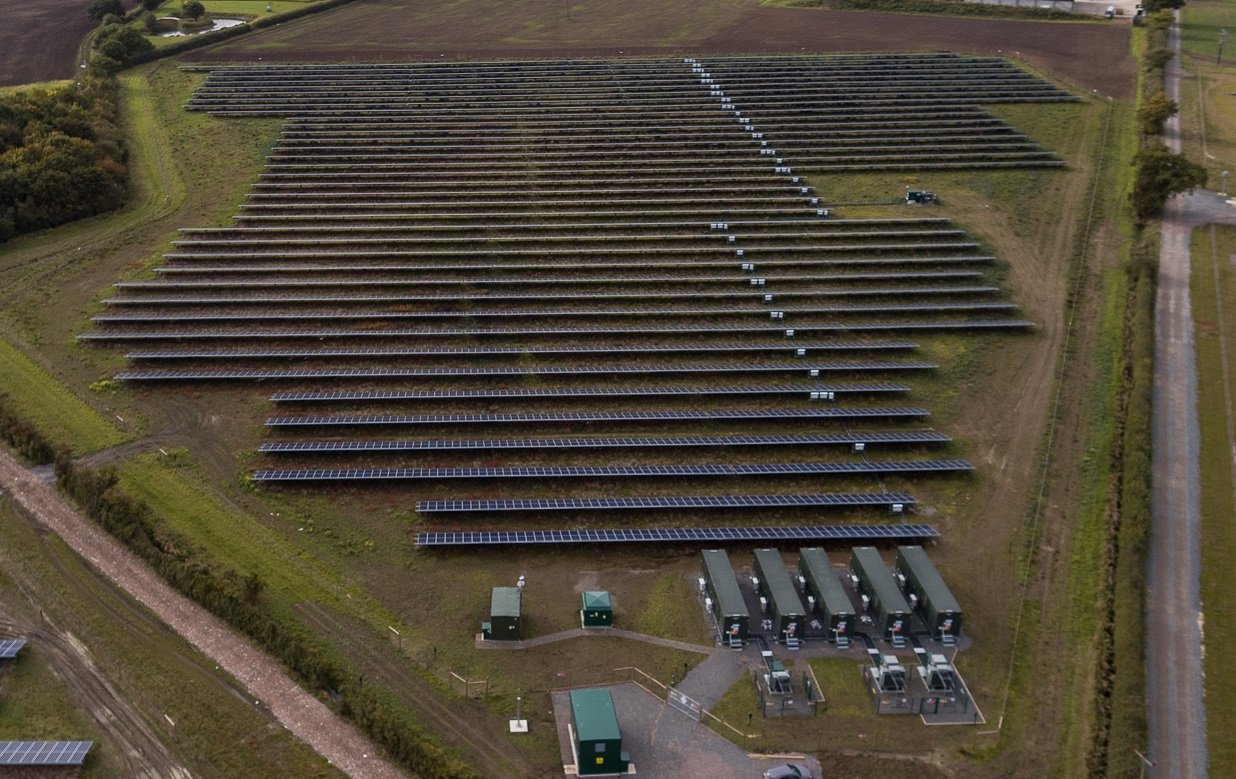The UK is in the middle of an energy storage boom, a new report has shown, with capacity set to rise significantly in the coming years.
More than 16.1GW of battery storage capacity is operating, under construction or being planned across 729 projects, according to the latest Energy Storage Project Intelligence report from trade association RenewableUK. The previous report, published in December 2019, identified a total pipeline of 10.5GW across 600 projects – in 2012, applications stood at just 2MW.
The capacity in development represents a significant portion of the UK’s energy demand. According to Gridwatch, the average demand in 2014 was 34.42GW.
Batteries and other energy storage methods are vital for maintaining consistent supply from renewable sources, which naturally fluctuate over hours, days and weeks. They help grid operators finely balance the supply of electricity to meet demand, and provide extra resources when needed, such as for frequency response.
The new document reveals that 1.1GW of battery storage capacity is operational, compared to 0.7GW in December 2019. A further 0.6GW is under construction, 8.3GW of capacity is consented and 1.6GW is in the planning system. 4.5GW is at an ‘early stage of development for future submission into the planning system’.
Legislation came into force in December allowing local planning authorities to determine projects with a capacity of over 50MW in England and 350MW in Wales. These were previously determined by central government, making the process longer and more complex. The change came after the government acknowledged data submitted by RenewableUK demonstrated that the 50MW cap was imposing an ‘artificial ceiling’ on the capacity of battery storage projects. The organisation has identified three projects which have since been submitted with a capacity of 100MW each.
An additional 6GW of energy storage from liquefied and compressed air, pumped hydro, flywheels and gravity-based technology is operating, under construction or being planned, bringing the total UK energy storage portfolio capacity to more than 22GW.
RenewableUK’s director of future electricity systems, Barnaby Wharton, said: “This is our deepest dive ever into the state of play in the UK’s innovative energy storage sector, revealing more comprehensive statistics than anyone has published before.
“We’re already seeing grid-scale batteries of 50MW being built, providing valuable flexibility to the grid, and we expect many projects with an even larger capacity will be submitted into the planning system following the removal of the 50MW cap.”
Read more: Institution of Mechanical Engineers




